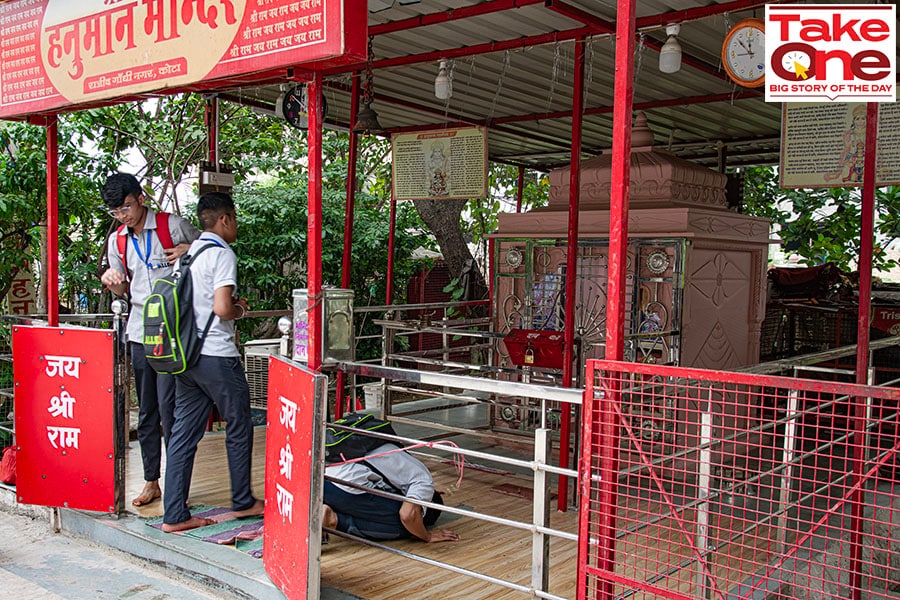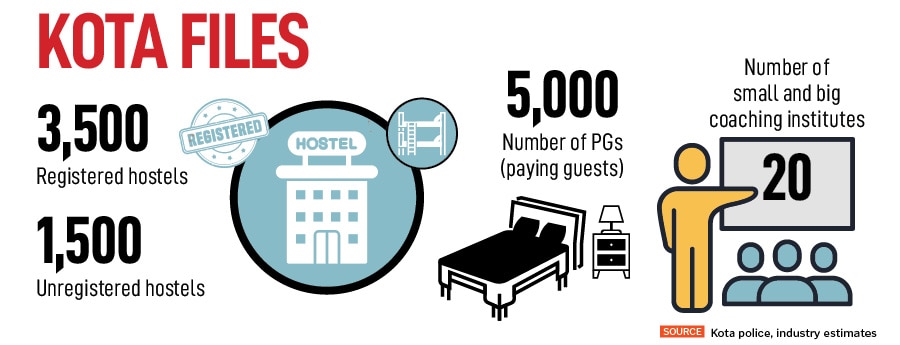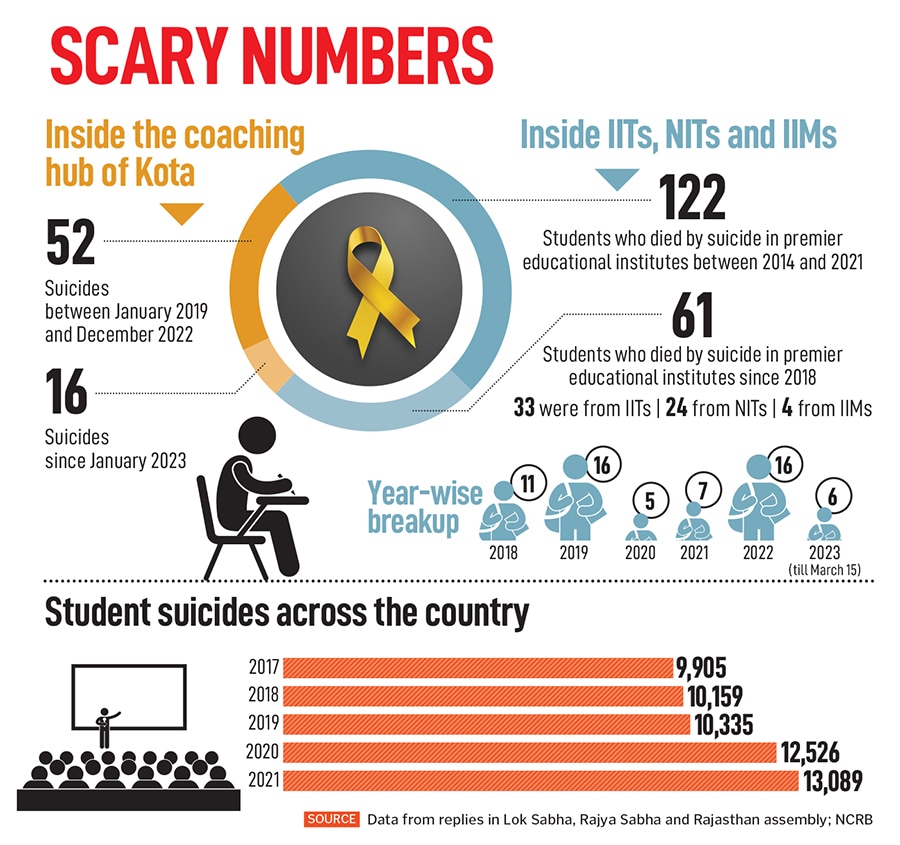
Inside Kota: Edgy students, caring crusaders & a missing safety valve
A police squad, a psychiatrist and an educator are proactively reaching out to students, sniffing for signs of distress, and trying to defuse the ticking 'suicide' bomb. To their horror, the grenade pin lies with the parents
 Students enter the Shri Das Hanuman Mandir in Rajiv Gandhi Nagar, Kota to offer prayers. Image: Kapil Kashyap
Students enter the Shri Das Hanuman Mandir in Rajiv Gandhi Nagar, Kota to offer prayers. Image: Kapil Kashyap
Jawahar Nagar, Kota. “Tum theek toh ho na, beta [Are you okay, son]?” Chandrasheel Thakur starts his Monday morning briefing by underlining why one must start a conversation by striking an emotional chord. “Tumhe kisi cheez ka stress hai kya [Are you under any kind of stress?]… bas, pareshan mat raho [don’t worry at all],” the additional superintendent of police (ASP) of Kota exhorts a bunch of hand-picked senior officers to have a stirring conversation once they step out for their daily patrolling in the morning, afternoon and late evening.
It’s a sultry July morning in Kota, some 260 km from the capital city of Rajasthan. There are no signs of rain, there is no respite from the heat, but Thakur is more concerned about the invisible dark clouds that are ominously hanging over the city. “Ye kaafi stress mein hain, aur ye aapke apne bachche hain [They are under immense stress, and they are your own kids],” the head of the recently formed students’ cell of Kota underlines his point. There are over 3 lakh students in the coaching hub of Kota. “Agar aapke bachche aapse dur reh kar padhte, toh wo bhi family miss karte [Had your kids stayed away from you and studied abroad, they too would have missed their families],” Thakur tries to make his team understand the value of having a heart-to-heart chat with the young boys and girls. “They need empathy. They don’t need sympathy,” he says. The patrol team gets ready to start from Abhay Command Centre at Jawahar Nagar Police station, which houses the Students’ Cell which was started in July.
Eight minutes and some 2.5 km away from Jawahar Nagar police station is Indra Vihar. SPS sir—Shashi Prakash Singh—is busy conducting a pep-up session at one of the engineering and medical coaching centres. “It’s okay to run for gold,” the educator underlines, “but it’s not okay to die for gold.” The teacher, who is trying hard to bring home the point why students must not entertain suicidal thoughts at any costs, continues with his passionate pitch. “All of you have come here to study, and all you can do is work hard,” says the social activist who runs his not-for-profit organisation Blossom India Foundation which supports education for orphaned kids. “It’s not a do-or-die situation. You are not stationed at the war front,” he adds.
The students find themselves hooked. “All of you won’t win. But it’s okay. Everybody can’t win,” he says. “Even Superman can’t be dead-sure of a win in Kota,” he grins. The small auditorium, which has over 500 students seated in neatly aligned green and red chairs, bursts into a loud cheer. Singh smiles as the students continue with their wild clapping. “Keep studying, keep smiling,” he says.














